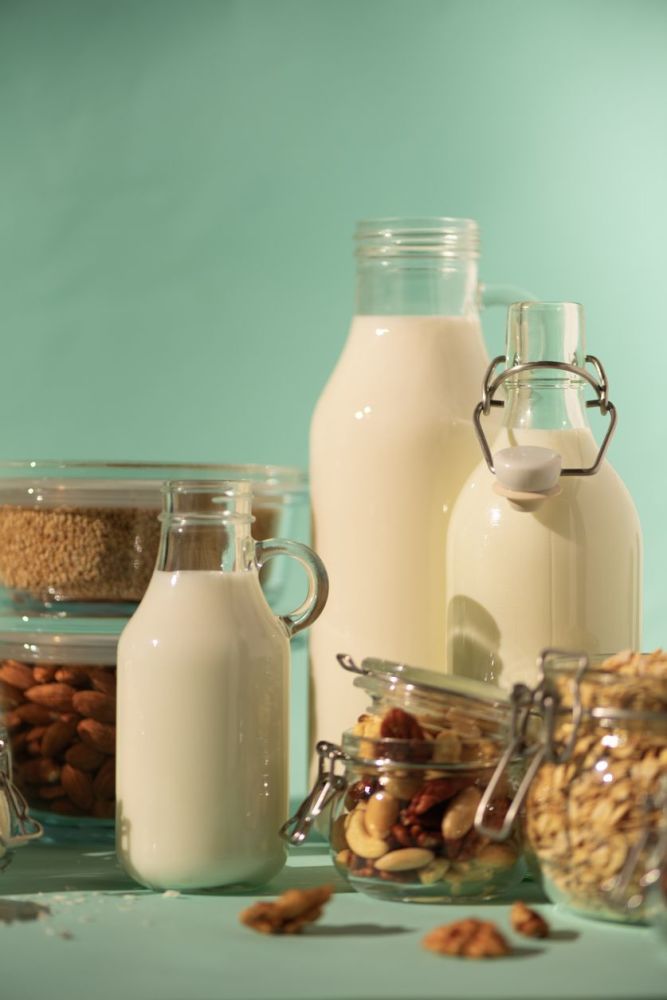MILK-FREE ALTERNATIVES – ARE THEY APPROPRIATE FOR CHILDREN? by Hazel Duncan
Posted on
 There is an ever increasing number of milk substitutes available in the UK. Whilst these substitutes provide essential nutrients for children and young people unable to consume cow’s milk protein, there is also growing interest in milk alternatives for people without allergies or intolerances. Paediatric Dietitian, Hazel Duncan, RD, discusses some of the key factors that parents and carers should consider when choosing an alternative milk.
There is an ever increasing number of milk substitutes available in the UK. Whilst these substitutes provide essential nutrients for children and young people unable to consume cow’s milk protein, there is also growing interest in milk alternatives for people without allergies or intolerances. Paediatric Dietitian, Hazel Duncan, RD, discusses some of the key factors that parents and carers should consider when choosing an alternative milk.
The three key considerationsfor children when deciding upon milk alternatives for children are:
- The child’s overall dietary intake should be considered – parents/dietitians should consider if the child is getting enough macronutrients (energy, fat, protein, carbohydrate) from the rest of their diet.
- Micronutrients should be considered. Cow’s milk contains protein, fat, energy, calcium, B vitamins and iodine. It is important when choosing a milk alternative that you look for one as close to the nutritional profile of cow’s milk, especially if the child’s diet is limited.
- Growth should be considered – some milk alternatives are lower in calories and, therefore, may not be a preferred option for a child who is struggling to maintain centiles.
Milk alternatives can be used in cooking or mixed with food from six months of age, but breast- feeding /formula should be the main drink until at least 12 months of age and occasionally up until two years of age depending on growth and dietary restrictions.
 MILK ALTERNATIVES AVAILABLE
MILK ALTERNATIVES AVAILABLE
Soya milk
Soya-based milk is a good alternative to cow’s milk. Unsweetened varieties are available. Growing-up versions are available that have a similar nutritional profile to cow’s milk. Some soya milks are fortified with iodine and if possible parents should be encouraged to choose an iodine-fortified soya milk. Some patients with an allergy to cow’s milk will also have an allergy to soya milk and, therefore, if first exposure , it should be introduced with caution.
Oat milk
Oat milk is lower in protein than soya milk, so, if parents choose this as the alternative milk, care should be taken to ensure adequate protein in the rest of the diet. Oatly has developed milk alternatives with similar fat content to whole, semi skimmed and skimmed milk and again care should be taken to ensure the highest fat content for the young child due to increased energy requirements. Alpro have recently launched oat growing-up milk which is aimed at children aged one to three years. This is higher in protein and calories than other oat milks on the market and is also fortified with iodine.
Pea milk
Pea milk generally has a higher protein content than other milk alternatives. It is lower in calories than the growing-up oat and soya milks that are available. Pea milk from Mighty Pea Society contains iodine, calcium and vitamin B12. Unsweetened versions should be encouraged.
Coconut milk
Coconut milk is not a great milk alternative for the young child. Coconut milk is generally lower in protein than other milk alternatives and some of the unsweetened varieties are very low in calories. From the coconut milks reviewed, only Koko Super contained iodine. If a parent chooses coconut milk as a milk alternative, care should be given to ensure the rest of the diet is well balanced.
Nut milks
Nut milks are generally low in energy and protein making them unsuitable for young children as a nut alternative. Many nut milks are not fortified with iodine.
Hemp milk
Hemp milk is low in energy and protein and, therefore, would not be an ideal milk alternative for children. Hemp milks also have low levels of other micronutrients and do not contain iodine.
Rice milks
These are unsuitable for children under four years of age.
THE BEST MILK-FREE ALTERNATIVE?
The growing-up milk ranges (soya and oat) contain the best protein and energy levels and compare closest with cow’s milk; they also contain iodine. The mighty pea is also a good choice due to the high levels of protein and addition of iodine. However, care should be given to ensure no growth concerns.
Hazel Duncan, RD
Paediatric Dietitian, Kids Nutrition
Hazel is a paediatric dietitian with 19 years' experience.
Her previous research has been around inflammatory bowel disease.
She currently covers a wide area of specialities.
